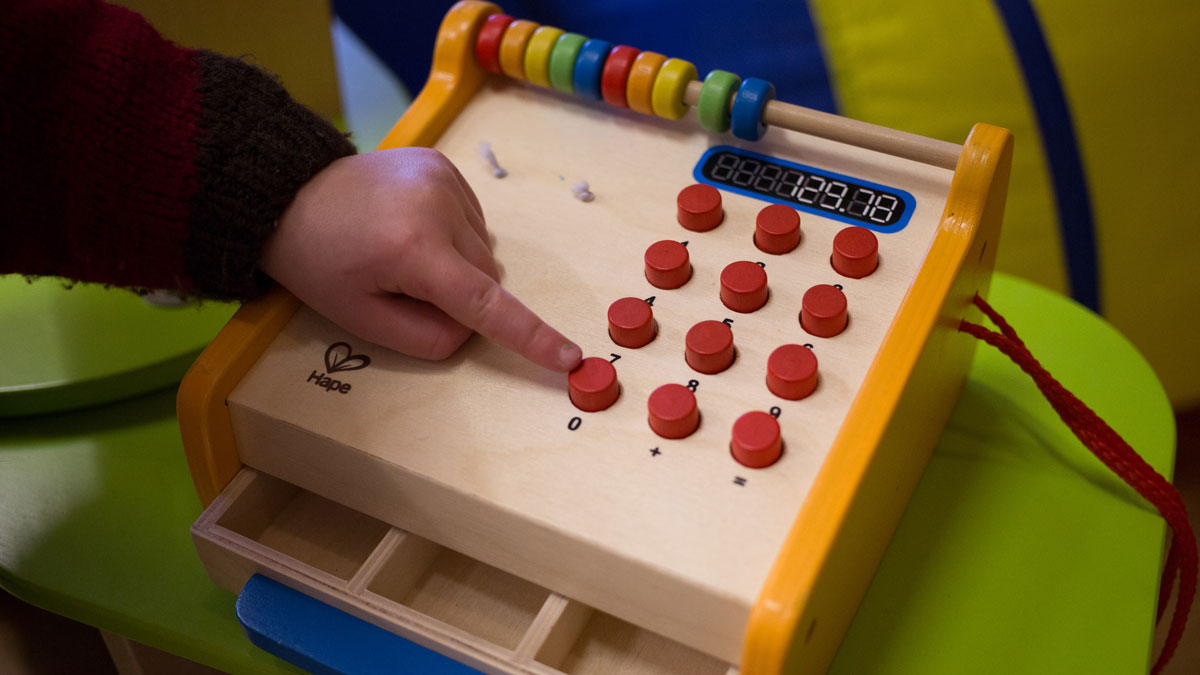The four best savings accounts for children
Even with Brexit looming and interest rates holding, it’s not all doom and gloom for the future

A free daily email with the biggest news stories of the day – and the best features from TheWeek.com
You are now subscribed
Your newsletter sign-up was successful
With UK university courses now costing almost £30,000, an average deposit on a first home [https://www.theweek.co.uk/96930/how-to-save-money-in-your-twenties] reaching £33,000 and Brexit on the horizon, it’s not hard to see why pessimism is the order of the day for parents thinking about their children’s financial future.
Those looking to set up savings accounts for their kids will likely be further disheartened by forecasts from the Financial Times that state that “even under a very benign Brexit outcome” the UK economy “will feel the adverse effects of global monetary trends.
“If the Old Lady of Threadneedle Street suddenly finds herself becoming the centre of markets’ attention, she might have to reluctantly head to the track for the policy race to the bottom” by slashing interest rates, the paper adds.
The Week
Escape your echo chamber. Get the facts behind the news, plus analysis from multiple perspectives.

Sign up for The Week's Free Newsletters
From our morning news briefing to a weekly Good News Newsletter, get the best of The Week delivered directly to your inbox.
From our morning news briefing to a weekly Good News Newsletter, get the best of The Week delivered directly to your inbox.
But a little bit of research goes a long way when dabbling in the world of children’s bank accounts. As Which? says: “You’ll often find children’s savings accounts have much more generous interest rates than adult accounts - but they can also come with a lot of caveats, so make sure the account works for your circumstances before you commit to opening it.”
Where should you tuck away money for your child’s future?
Best Junior ISA
The first port of call for children's savings should be a Junior ISA (JISA). This allows you to save money either into cash or investments and the money grows free from income and capital gains tax until the child turns 18, at which point the JISA automatically converts into an adult ISA.
A free daily email with the biggest news stories of the day – and the best features from TheWeek.com
For the 2019/2020 tax year, ther is an annual £4,368 limit on how much you can pay in.
The best cash JISA is offered by Coventry Building Society with a 3.6% interest rate. But, over a long period, such as 18 years, the stock market historically outperforms cash so you may want to opt for an investment JISA instead. Money to the Masses rates the Wealthsimple Junior Stocks and Shares ISA, which assigns you one of nine pre-set portfolios based on a questionnaire, making it “good for people who don't want to pick investments themselves and would prefer someone else to invest and manage a Junior ISA for them”.
If you're shopping around for an investment JISA, make sure you compare the fees, the range of funds you can invest in and the annual management charge.
Best Children's Savings Account
If you've maxed out your child's JISA allowance then the next option is a standard children's savings account. Children get a personal savings allowance just like adults so this money should grow tax-free too. Just be aware that if you are the parent and you deposit money into the account that accrues more than £100 interest in a year it will count towards your own £1,000 personal savings allowance (£500 if you are a higher rate taxpayer).
HSBC's My Savings account pays 3% on balances up to £3,000, but the account can only be opened and managed in branch.
Nationwide's Smart account can be managed online but pays slightly less at 2.5%.
Best Regular Saver
According to MoneySavingExpert’s CEO Martin Lewis, “on interest, the easy winner is the Halifax Kids’ Regular Saver”.
This account, which is available to children up to the age of 15, “pays 4.5% AER fixed for a year, though you can only pay in between £10 and £100 per month”, he says.
ITV says that although you are allowed to miss a month, users of the Regular Saver can’t withdraw any money until the end of the year, at which point they can open and access it online or in branch. The account pays a variable rate of 2% on balances up to £5,000, falling to 0.2% over this amount.
Which? reminds potential savers that anyone who isn't a parent or legal guardian of the child will need their permission to open this account - this includes grandparents.
Best Instant-Access Savers
If you want to ensure that your child can access their savings funds whenever they like - say in the case of an emergency - Which? reports that the best instant-access savings rate is currently 1.5% AER, offered by Cynergy Bank and Marcus by Goldman Sachs.
“However, the Marcus account includes a yearly bonus of 0.15% AER, so you may need to switch to a more competitive account thereafter,” the consumer magazine adds.
The next best available rate for instant-access accounts is offered by Shawbrook Bank, which offers 1.48% AER.
-
 What are the best investments for beginners?
What are the best investments for beginners?The Explainer Stocks and ETFs and bonds, oh my
-
 What to know before filing your own taxes for the first time
What to know before filing your own taxes for the first timethe explainer Tackle this financial milestone with confidence
-
 The biggest box office flops of the 21st century
The biggest box office flops of the 21st centuryin depth Unnecessary remakes and turgid, expensive CGI-fests highlight this list of these most notorious box-office losers